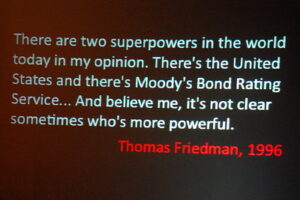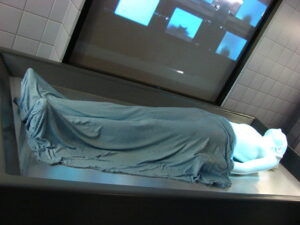Attending college has always been thought of as an investment, because historically, earning a college degree meant earning more money. WCC students show up every day because they believe in the value of a degree. The accepted rationale for going to college is that a degree is the path to increased lifetime earnings. As usual, however, the facts seem to get in the way.
I read something today that is frankly disturbing.
Black millennials born in the 1980’s who graduated from college fare no better economically than Black millennials who did not.
For many of these individuals, their diploma was little more than a receipt. This will have significant implications for current and future WCC students.
The economic return that college graduates expect to reap for their troubles is collapsing. In the 1950’s, college graduates could expect to out-earn non-degree holders 3:1. Gen Xers who graduated from college could expect to collect double the lifetime earnings of their high school classmates who did not earn a degree. Millennials… not so much.
And the decline in the value of a degree is not just a generational thing or a racial thing. The earning gap between a PhD and a master’s degree, or between a master’s degree and a bachelor’s degree is also falling. Which means that there is not much daylight between an associate degree and a high school diploma.
So, that is a problem because most WCC students do not go to college for personal enrichment. And if going to college does not lead to a discernible economic reward, then why go?
For WCC students, it is essential, then, to make sure there is as much ROI as possible on a degree. Community colleges cannot control how much their graduates earn on the open market, but they can control how much their degrees cost.
Poor oversight costs WCC students their ROI
And part of controlling the cost of a degree is rigorously controlling the operational costs of the institution. That means not building unnecessary buildings, not ignoring the college infrastructure, and not binge-hiring Vice Presidents. It means not gambling away the money the taxpayers authorized for College operations on sure-fire moneymakers that don’t make money. It requires the Trustees to ask questions, carefully consider expenditures, and say “No” on occasion. When the institution fails to control costs, the Trustees fail both WCC students and the community.
College executives rationalize their ludicrous spending decisions because “we’re in a rich community.” The WCC Board of Trustees signs whatever the Administration places in front of it, making no attempt at fiscal oversight. By the time WCC students graduate, their ROI has been long-ago plundered by a phalanx of administrators whose only contribution to their education was to raise its cost.
The Trustees have exercised no oversight whatsoever over the WCC Administration for years. As a result, WCC students are now literally at the point of no return.
Photo Credit: Tom Page, via Flickr




























